While talking about the Londis brand’s 60th birthday earlier this year, Martin Swadling, Londis brand director, revealed that 49% of its retail stores are in the forecourt sector. The estate is a mixture of independent retailers and groups, but a huge chunk belongs to number one Top 50 Indie, MFG.
"We were very lucky back in 2016/17 to win the MFG contract which made a fundamental difference to our performance and our portfolio and also to the mix of our stores," explains Swadling. "Suddenly we became a much bigger forecourt operator. That relationship has moved on, and when MFG acquired MRH we were delighted that we won that contract to supply the MRH stores too, which are being transferred over time to Londis and Budgens, in line with the MFG estate. We’re also delighted MFG has made the decision to give us 130 Spar stores to convert to Londis and Budgens. We also have active national accounts with businesses such as Applegreen and Roadchef, so there’s lots of good development in the forecourt world."
When announcing the rebranding of shops from Spar to Londis or Budgens, MFG’s retail director Paul Dennis said: "We are confident that moving to Londis and Budgens will help drive additional footfall through our stores and enhance the customer shopping experience," adding that he believed Booker’s promotional programme and Spend & Save rewards had already added significant benefits to its forecourt retailers.
While Londis and Budgens are working well for MFG, other retailers favour other symbols and this merry-go-round of moving fascias will no doubt continue as retailers endeavour to find the right brand partner for their business
Rachel Hockmeyer at Holdingham Garage in Sleaford has been with Spar for eight years. She likes Spar because she says they have the biggest wealth of business knowledge out there. "They are also interested in us as a partnership; they are not dictatorial. I’m not interested in companies that just want to sell me more stuff, I want them to want to help our business grow and that’s what we’ve got with Spar the overall package," Rachel explains.
The latest development in this business partnership has the Hockmeyer’s site positioned as one of Spar wholesaler Blakemore’s flagship sites following a massive overhaul.
"The shop now is completely different," explains Rachel. "Really it’s two shops in one. We have a whole area of ’Feed Me Now’ with food-to-go and Heat to Eat, where paninis and toasties are cooked in a combi oven. We reviewed the Daily Deli range and added more there. We expanded soft drinks, added a Costa machine, went big on things like doughnuts, increased our healthy snacking ranges all together in one dedicated area.
"The second area of the shop is ’Tonight’s Tea’ where we have gone big on ready meals and also frozen. The supermarkets aren’t seeing the growth in frozen that convenience is, but it’s really working well for us. We made all these changes sooner than we planned but Blakemore is being proved right. Their idea is continual development for continued growth and that is working for us."
Another Spar fan is Top 50 Indie Penny Petroleum, which recently signed a deal to move a further eight of its Scottish convenience stores to Spar.
Penny Petroleum currently number six in the latest Top 50 Indies listing has 52 forecourts across the UK. It has had two sites with Spar stores for two years. By the end of this year, it will move a further eight Scottish stores to Spar, with all 10 stores supplied by CJ Lang & Son.
Vicky Hennessy, business development manager at Penny Petroleum, says: "Spar has a strong brand presence in Scotland, which will help develop our business in this geographical area. Having worked with Spar and CJ Lang since 2017, we have been impressed by their commitment and support.
"Spar has been proactive in helping us engage with our communities, including product launch days and healthy eating for local schools. Their team are passionate about helping us achieve our goals, and they deploy their team to get the best from each store so we all work together."
The move will take place over the next six months, as the team looks at internal and external branding at each site. There will be a focus on expanding food-to-go, fresh and frozen food, and beer, wine and spirits.
Meanwhile, Spar UK retail director, Ian Taylor, believes the group has the most successful independent retail proposition in the UK. "We’ve had seven years of consecutive sales growth, footfall and basket spend across our 1,150 forecourts. Spar is a transformational fuel and convenience store group coupled with a great foodservice offer. Success has been as a result of our strategic focus on the forecourt arena, the shopper and the constant development of industry-leading site formats. These formats bring together a huge variety of options for forecourt retailers including our successful Daily Deli foodservice offer and a range of high-quality food-to-go products, all supporting the needs of the ’on the go’ transient consumer."
Meanwhile, Southern Co-op is busy recruiting retailers to its Welcome brand whether single or multi-site operators. The company says it offers a comprehensive support package plus retailers can benefit from its retail experience that spans nearly 150 years. It says its position as a regional, independent co-operative means it understands how important it is for franchisees to keep their individuality while enjoying the benefits of a larger brand with a strong buying power the best of both worlds, it says.
Southern Co-op is looking for retailers South of the M4 from Cornwall to Kent and inside the M25. It is after a minimum store size of 1,600sq ft. There is a one-off joining fee of £2,500 and theirs is a five-year contract.
One happy Southern Co-op owner and franchisee is Visvanathan Ragunathan at Welcome Southwater in West Sussex. "After discussions with Southern Co-op’s franchise business manager, I really liked both the initial support and the on-going support that was offered, as well as the great Co-op own label range, and especially the fresh foods."
Visvanathan says the shop refit was completed using his own shopfitters, who worked to the Welcome specification. "This gave us the freedom to look at better value-for-money options for the store fit-out. This is such a large cost that the opportunity to save money on this was very important to me, without sacrificing the quality."
He says he has the freedom to order as many of the Co-op lines as he wants, and can also choose to stick to planograms or decide his own range.
"Nowhere else have I seen the amount of own label available for a franchisee," he says, adding: "We also have the freedom to stock local products and use local suppliers, but still offer the full Co-op range. The promotions are great and the epos system really helps me manage my business and stock holding.
"Our customers love the Co-op own-label range and promotions. They love the quality and ethical stance of the Co-op and already our fresh food sales are exceeding our expectations."
Meanwhile, Top 50 Indie George Hammond recently relaunched its Three Elm site in Tonbridge, Kent, following a knockdown rebuild, which included moving the shop from Spar to Southern Co-op’s Welcome franchise.
The new development features a four-square forecourt providing all grades of fuel and AdBlue with two HGV lanes and a new four-bay Aquatec car wash centre.
There is also a two-storey shop providing about 300sq m of sales space on the ground floor, with administration, welfare and training upstairs, and a feature atrium which provides visibility of the shop floor.
George Hammond is moving all of its six BP sites from Spar to the Welcome fascia over the next six months. George Hammond director, John Ryeland, says: "Over the last decade, we have seen many changes in the petrol retailing business with most of our sites being redeveloped into larger convenience store formats. Transferring to the Welcome franchise gives us support from the Southern Co-op team and access to all products and promotions available in mainstream Co-op stores.
"The shift in UK consumer habits from the weekly big shop to more regular small top-up convenience store visits has been recognised by all the major hypermarkets. This move will allow us to sit more comfortably in this sector with focus on range, ethical values and all at a reasonable price."
Nisa move
When joining Nisa, retailers can choose to operate under the Nisa Local or Nisa Extra fascia or be dual branded where they keep their local identity but still benefit from the strength of the Nisa brand. Alternatively, they can choose to trade under their own independent fascia.
In terms of the store, Nisa says it offers flexibility to retailers with its Evolution store format, which is a move towards a more modular development format, accommodating the individual demographic and shopping missions of every store. New Hall Lane in Preston, Stevenson’s in Northallerton and Tuffins in Welshpool are just three examples of forecourts which have adopted Evolution.
Nisa says the concept takes on board emerging trends in the marketplace to create a store design that captures additional footfall and spend, while setting Nisa retailers apart from the competition. The Evolution store format has been a great success, with those retailers who converted in 2018, achieving, on average, a 12% uplift in sales.
Head of format and development at Nisa, Darren May, explains: "The move away from a one size fits all model to a more modular development format continues to prove successful for our retailers and the figures show that it is working for them.
"Our store development managers work very closely with our retailers to ensure they deliver the best fit for them and their demographic.
"The aim is to give each store a unique quality and selling point, required to make a difference in the marketplace."
There’s no doubt that symbol groups are helping independent retailers run their businesses more efficiently and more profitably. But the secret is finding the group that works best with your business model and vision for the future. Some retailers are lucky and choose the right one first time; for others it’s more trial and error.
The best advice as always is to do your homework before making a choice. Look at what the symbol group can offer in terms of range and promotions; loyalty discounts; marketing support; store development programmes; epos; training; own brand; advice and general help.
It’s also important to go and look at some of their stores to see whether their image is right for you and your customers.
There’s definitely a lot to think about but getting it right can prove very profitable.
Costcutter support
North Street Garages in Haverhill, Suffolk, has been in Roger Westrope’s family for around 90 years; 45 years at the current site. "I’m now the fifth generation to run the store having been at its helm for the past 20 years," says Roger.
He says food-to-go is the store’s real point of difference now with a full range of snacks, sandwiches, coffee and hot food.
"Looking at the insights provided by Costcutter, we recognised there was a real opportunity to grow our food-to-go offering to increase footfall.
"We worked closely with our business development manager and the team at Costcutter to rework the store, doubling the space allocated to food-to-go, including the introduction of a run of low-level gondolas and a whole range of Co-op sandwiches and snacks.
"The Costcutter team supported us through the whole process, advising on store layout, range selection and even helped implement the new range. The ongoing support is what I’ve found so valuable. Sales of food-to-go are up 40% and continue to remain strong."
Retailer view
Darren Briggs
managing director/CEO of Ascona Group Holdings:
"I joined best-one from Costcutter in 2016 with three stores, and the team there have been with me on my journey to now operating 12 petrol filling stations.
"I’ve been very impressed with their professionalism, commitment and support for my business.Best-one has both the range and delivery network to support my stores and the customers we serve, and I would recommend anyone looking for an alternative supplier to consider best-one at Bestway Wholesale."
Subway’s five-step joining plan
Any retailer interested in becoming a Subway franchisee should go to subwayfranchising.com/en and first look at the ’franchise opportunities’ page. This lists the regions where the fast- food chain is looking for franchisees. Currently those regions include Derbyshire and South Yorkshire, Bristol and West and Greater Manchester/West Yorkshire. Prospective franchisees are encouraged to book a meeting with a development manager and also attend a free, two-hour seminar to learn about the franchisees process and the Subway brand.
Subway also includes a ’Five Steps to becoming a Subway franchise owner’ plan.
Step one is research: where retailers are advised to research the franchise market and look at all the options available.
Step two is investigate talk to existing franchise owners to learn more about Subway. The company says to ask them why they chose the franchise, how long they’ve been a franchise owner, how many stores they have and how they are doing. It also says prospective franchisees should visit the outlets and sample the food.
Step three is to apply by filling in an application form. This puts you under no obligation to purchase a franchise. Upon receipt, a disclosure document will be sent to applicants, which includes further information.
Step four is to review the disclosure document with a financial advisor or solicitor, and discuss financial issues with your bank manager.
And step five, according to Subway is to join Subway... apparently it’s as easy as that!
Greggs is on a roll
Vegan sausage rolls have helped Greggs report an ’exceptional sales performance’ for the start of this year, thanks in no small part to the publicity surrounding their launch.
Meanwhile, in its preliminary results for the 52 weeks ending December 29, 2018, the bakery chain reported a ’robust performance’. Total sales grew by 7.2% to just over £1bn.
The company says its purpose is to make good, freshly prepared food accessible to everyone with the aim of becoming the customers’ favourite for food-on-the-go. It has done this by adding new store locations across the UK, with many on forecourts. Greggs says that being ’within easy reach for customers when they need us’ is a prerequisite.
In 2018 it opened 149 new shops (including 62 franchise units) and closed 50, growing the estate to 1,953 shops trading as at 29 December 2018. Within this number are 262 franchised shops, predominantly in travel locations. For this year, the company plans to add at least 100 (net) new shops including around 50 with franchise partners.





















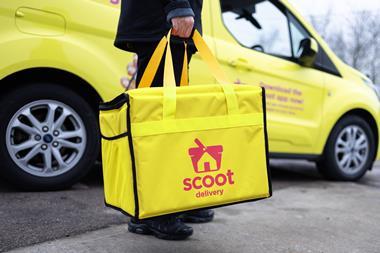
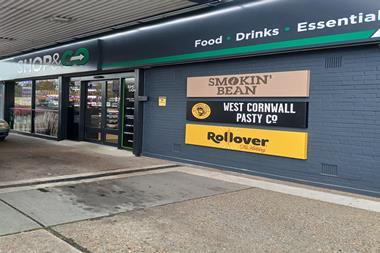
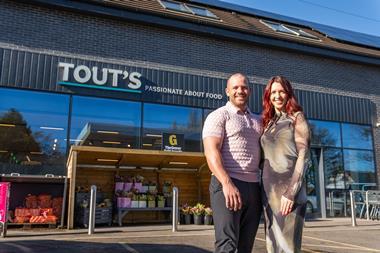
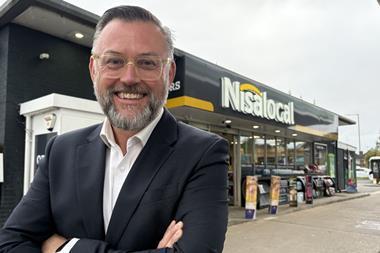
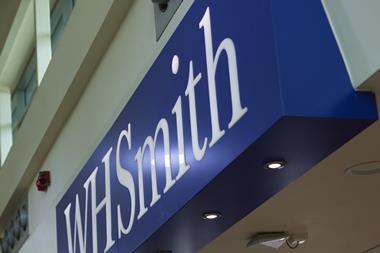
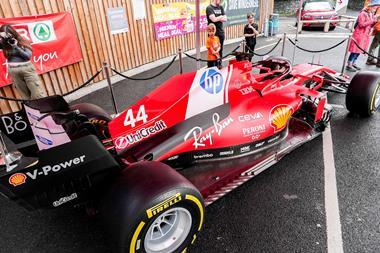
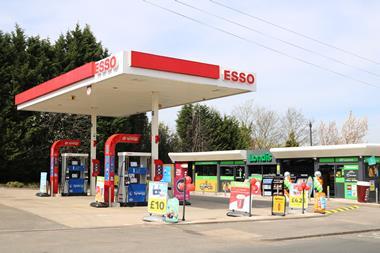
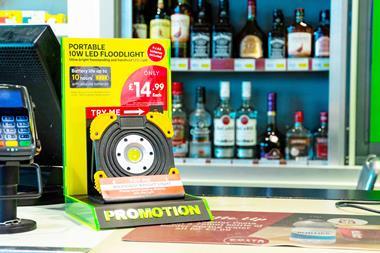
No comments yet